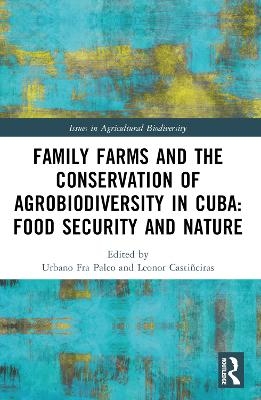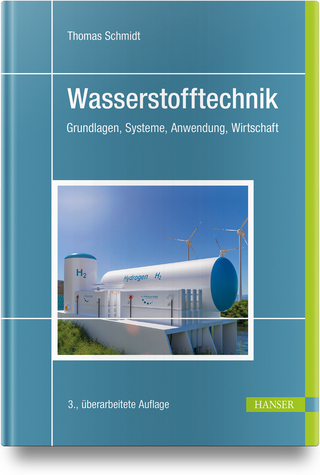
Family Farms and the Conservation of Agrobiodiversity in Cuba
Routledge (Verlag)
978-1-032-56164-6 (ISBN)
- Lieferbar (Termin unbekannt)
- Versandkostenfrei
- Auch auf Rechnung
- Artikel merken
Covering over two decades of research in agriculture and biodiversity conservation in Cuba, this book provides a unique case study about sustainable agriculture. It shows how the agricultural biodiversity maintained in situ by family farms within those protected areas provides a strategic source of crop genetic resources, including seeds and planting materials, as well as agroecological knowledge and practices. Agricultural practices within and around the Biosphere Reserves have helped to promote local food security through healthier and more diverse food production, while contributing to the conservation of biodiversity and of ecosystems. The book also reports on the adoption of transdisciplinary methods, combining ecological, agronomic, and socio-economic research, along with participatory methods involving farmers in research to document ethnobotanical and farmer knowledge, revealing rich spots of agrobiodiversity maintained in landscapes, seed systems, and nurseries managed by farmers. It covers a range of ecosystems and biocultural landscapes from arid tropics, tropical hillsides and savannas, montane rainforests, and coastal areas. It examines how family farms in diverse Cuban ecosystems use biodiversity, agro-ecological knowledge, and techniques while sustaining natural and farming landscapes in a scenario of climate change, frequent disasters, and socio-economic and policy changes.
This book will be most suitable for those studying or interested in farming practices, biodiversity conservation, food security, agrobiodiversity, and sustainable development, as well as in Cuban studies.
Urbano Fra Paleo is a retired Professor of Human Geography from the University of Extremadura, Spain. He is a member of the European Science and Technology Group (E-STAG), United Nations Office for Disaster Risk Reduction (UNDRR); Honorary Research Fellow of the Alliance of Bioversity International and CIAT, Senior Research Fellow of the Earth System Governance Project, and Member of the Academia Europaea. Leonor Castiñeiras is a biologist with a PhD in Agricultural Sciences. She worked as Scientific Researcher leading the Plant Genetic Resources Unit at the Instituto de Investigaciones Fundamentales en Agricultura Tropical Alejandro de Humboldt (INIFAT) in La Habana, Cuba. She has coordinated various international projects in partnership with Bioversity International (formerly IPGRI) on the characterization of genetic resources with particular focus on traditional varieties and their seed systems.
1. The Cuban Archipelago: Biological diversity, ecosystems and landscapes
José Manuel Guzmán Menéndez
2. The System of National Reserves in Cuba: Conserving biodiversity and ecosystem services
Carlos Gallardo Toirac, Augusto de Jesús Martínez Zorrilla, José Augusto Valdés Pérez and Dalia Salabarría Fernández
3. The western mountains: The Sierra del Rosario Biosphere Reserve
Fidel Hernández Figueroa, Jorge Luis Zamora Martín and Damaysa Arzola Delgado
4. The eastern mountains: Cuchillas del Toa Biosphere Reserve
Gerardo Begué-Quiala, Geovanys Rodríguez Cobas, Hayler M. Pérez Trejo and Rey F. Guarat Planche
5. The lagoons: Peninsula de Guanahacabibes Biosphere Reserve
Lázaro Márquez Llauger, José Alberto Camejo Lamas, Osmani Borrego Fernández and Lázaro Márquez Govea
6. On the edge of Sierra Maestra: Baconao Biosphere Reserve
Giraldo Acosta Alcolea
7. Nature’s Matrix: The quality of managed and natural landscapes
Ivette Perfecto and John Vandermeer
8. The background of international projects on agrobiodiversity in Cuba
Leonor Castiñeiras, Tomás Shagarodsky, Pablo Eyzaguirre and Toby Hodgkin
9. Measuring farm environmental sustainability in the Sierra del Rosario Biosphere Reserve
Gaia Gullotta, Nadia Bergamini, Paola De Santis, Alejandro González Álvarez, Jorge Luis Zamora Martín, José Manuel Guzmán Menéndez, Nicola Tormen and Enrico Ruzzier
10. Ecosystem services in agrobiodiversity and family farms: Indicators of social and ecological resilience
Alejandro González Álvarez, Nadia Bergamini, Dunja Mijatovic and Yanisbell Sánchez Rodríguez
11. Family farms as innovative living labs in agroecology and transfer of knowledge
Madeleine Kaufmann, Alejandro González Álvarez, Alberto Tarraza and Alessandra Giuliani
12. The conuco in Cuban agricultural systems and its contribution to agrobiodiversity
Alejandro González Álvarez, Parviz Koohafkhan and Tomás Shagarodsky
13. Urban agriculture: A view from Cuba
Noel J. Arozarena Daza, Yanisbell Sánchez Rodríguez, Maribel González-Chávez Díaz and Juan A. Soto Mena
14. Cuba’s farming market: Opportunities for development
Michely Vega León, Luis Sáez Tonacca, José Puente Nápoles and Maribel González-Chávez Díaz
15. Valorisation of products and services from Biosphere Reserves of Cuba
Maribel González-Chávez Díaz, Michely Vega León, Luis Sáez Tonacca and Yanisbell Sánchez Rodríguez
16. Voices of the farmers: Representations of sustainable farming and agrobiodiversity
Celia Cabrera Ibáñez, Alejandro González Álvarez, Lázaro Lorenzo Ravelo and Zoraida Mendive
| Erscheinungsdatum | 13.11.2024 |
|---|---|
| Reihe/Serie | Issues in Agricultural Biodiversity |
| Zusatzinfo | 16 Tables, black and white; 9 Line drawings, black and white; 26 Halftones, black and white; 35 Illustrations, black and white |
| Verlagsort | London |
| Sprache | englisch |
| Maße | 156 x 234 mm |
| Themenwelt | Naturwissenschaften ► Biologie ► Ökologie / Naturschutz |
| Sozialwissenschaften ► Ethnologie | |
| Sozialwissenschaften ► Soziologie | |
| Weitere Fachgebiete ► Land- / Forstwirtschaft / Fischerei | |
| ISBN-10 | 1-032-56164-5 / 1032561645 |
| ISBN-13 | 978-1-032-56164-6 / 9781032561646 |
| Zustand | Neuware |
| Informationen gemäß Produktsicherheitsverordnung (GPSR) | |
| Haben Sie eine Frage zum Produkt? |
aus dem Bereich


